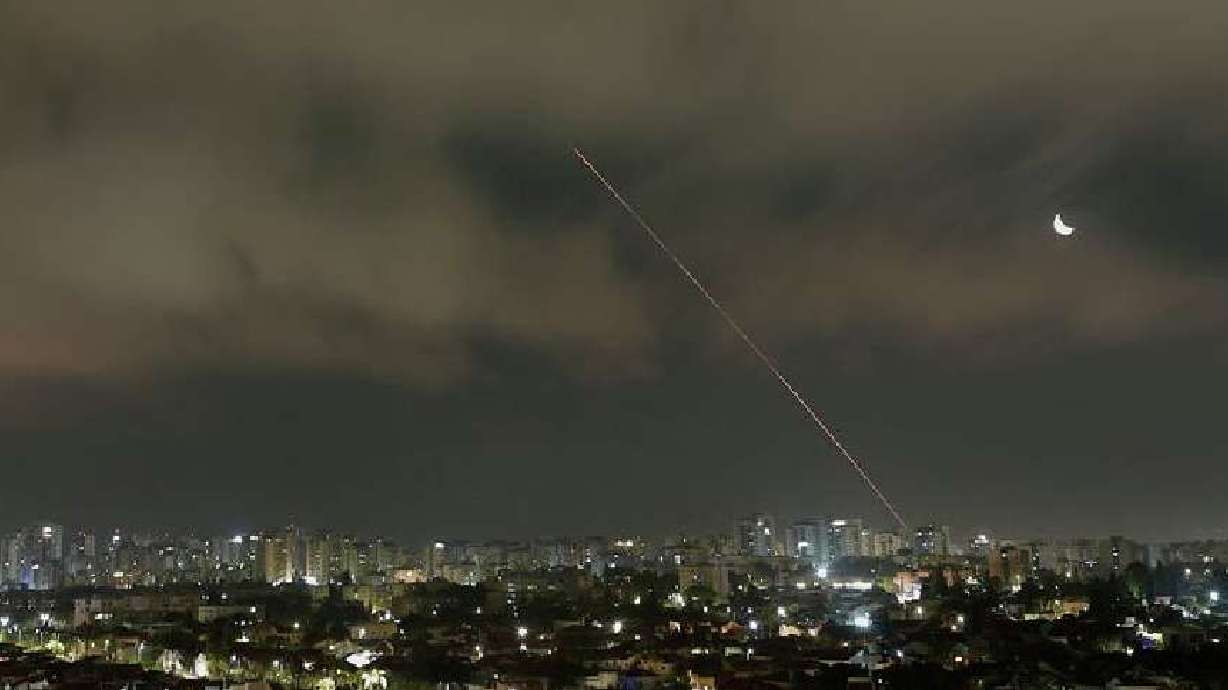JERUSALEM/WASHINGTON — In a significant escalation of hostilities, Iran and Israel launched new attacks early Saturday morning, following Tehran’s declaration that it would not engage in nuclear discussions while facing threats. This comes amid European efforts to revive peace talks.
Shortly after 2:30 a.m. in Israel, the military issued a warning about a missile barrage from Iran, prompting air raid sirens to sound across central Israel, including Tel Aviv and the Israeli-occupied West Bank. Israel’s defense systems intercepted missiles overhead, causing loud explosions to resonate throughout the metropolitan area.
Simultaneously, the Israeli military retaliated with strikes aimed at missile storage and launch facilities within Iran. Magen David Adom, Israel’s national emergency service, reported that sirens were also activated in southern Israel. An Israeli military official stated that five ballistic missiles were launched from Iran, with no immediate reports of impacts.
Fortunately, no casualties were reported initially. However, emergency service personnel shared images of a fire atop a multistory building in central Israel, which local reports attributed to debris from an intercepted missile. Last Friday, Israel initiated its attacks on Iran, citing concerns that its adversary was close to developing nuclear weapons. Iran maintains that its nuclear program serves only peaceful purposes, retaliating with missile and drone strikes targeting Israel.
Israel is generally presumed to possess nuclear weapons, a claim it neither confirms nor denies. According to the Human Rights Activists News Agency, a U.S.-based organization that monitors Iranian human rights, Israeli airstrikes have resulted in the deaths of 639 individuals in Iran, including key military leaders and nuclear scientists. Conversely, Israeli authorities report that 24 civilians have lost their lives due to Iranian missile assaults, although independent verification of these casualty figures by Reuters remains unattainable.
As tensions mount, Iran has consistently targeted Tel Aviv, a significant urban center with a population of around 4 million and a critical economic hub. Israel claims it struck numerous military installations on Friday, which included missile production sites and a research facility in Tehran it alleged was involved in nuclear weapons development.
Iranian Foreign Minister Abbas Araqchi emphasized that negotiations with the U.S. would not resume until what he termed Israeli aggression ceased. Nevertheless, he attended a meeting in Geneva on Friday with European foreign ministers, who were aiming to establish a diplomatic pathway.
Meanwhile, President Donald Trump stated that he would take up to two weeks to assess whether the United States should join the conflict on Israel’s side, saying it was essential to “see whether or not people come to their senses.” He expressed reluctance to press Israel to reduce its airstrikes to facilitate negotiations, stating, “I think it’s very hard to make that request right now. If somebody is winning, it’s a little bit harder to do than if somebody is losing.”
Despite ongoing talks in Geneva, Trump expressed skepticism about achieving a ceasefire, suggesting that Iran was not interested in discussions with Europe and preferred direct engagement with the U.S. Reports indicate that hundreds of U.S. citizens have evacuated Iran since the onset of the air war, as revealed in a U.S. State Department cable obtained by Reuters.
Israel’s UN envoy, Danny Danon, informed the Security Council that the nation would persist with its strikes “until Iran’s nuclear threat is dismantled.” In response, Amir Saeid Iravani, Iran’s representative to the UN, called for Security Council intervention and expressed concern regarding reports of potential U.S. involvement in the conflict.
Both Russia and China have urged for immediate de-escalation in the region. An Iranian official conveyed to Reuters that while Iran is open to discussing restrictions on uranium enrichment, it would categorically reject any terms that would prohibit it from continuing to enrich uranium entirely “especially now under Israel’s strikes.”

